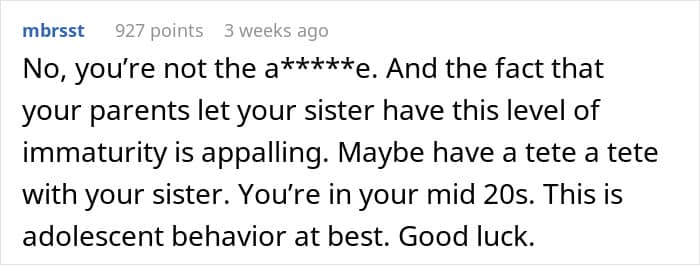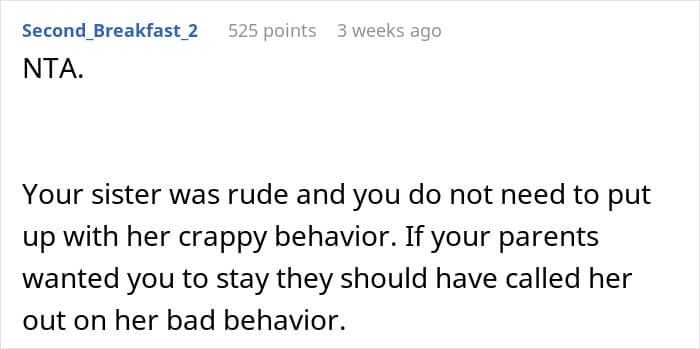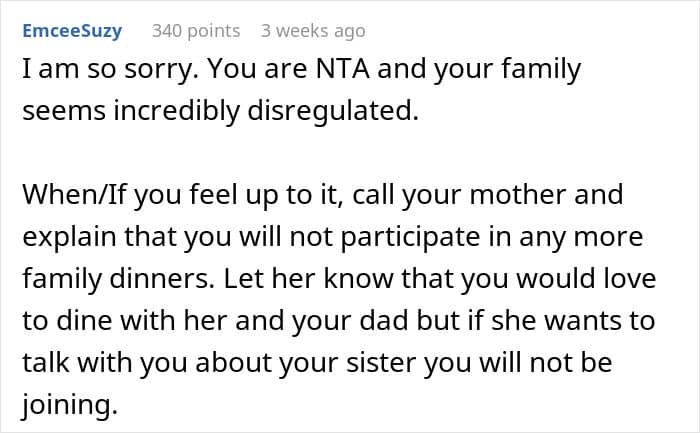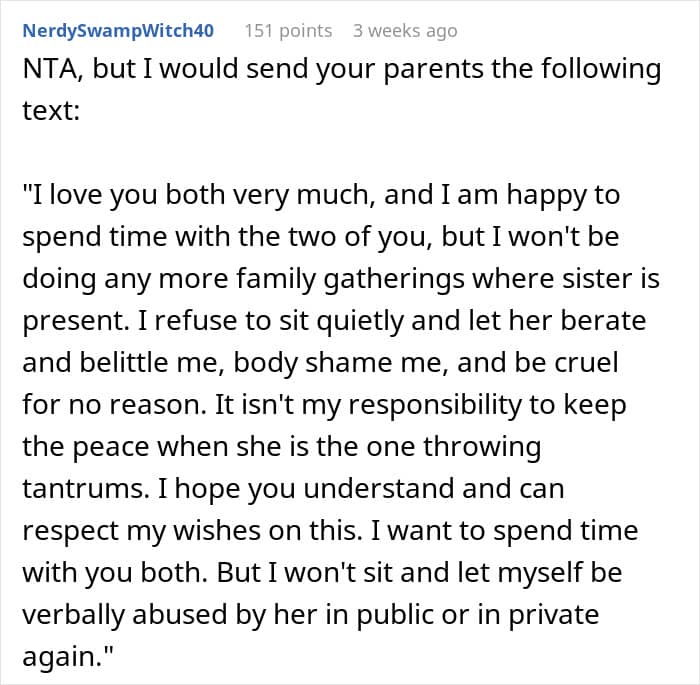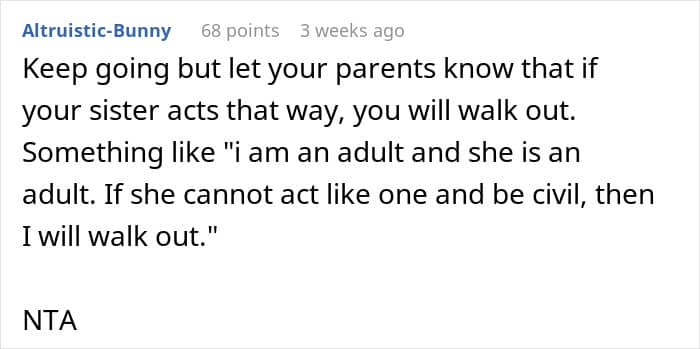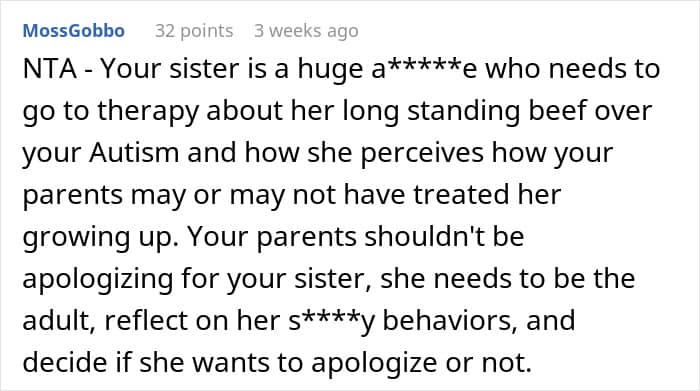Don’t you just love the sibling dynamic? One minute you’re sharing snacks and inside jokes, the next you’re arguing over who gets the last slice of pizza. But it could get less pretty when a sibling doesn’t just argue with you but tries to control your every move.
That’s the unfortunate reality for today’s Original Poster (OP) whose younger sister has spent years treating her less like a sibling and more like a client in a court case she never signed up for. Things hit a boiling point over something as simple as ordering food at a restaurant, but this time, the OP snapped.
More info: Reddit
RELATED:Siblings should have your back, but they could take it too far by deciding they should speak for you and make your choices

The author’s sister has always been rude to her, insisting on speaking on her behalf, and also has a history of just wanting her to shut up
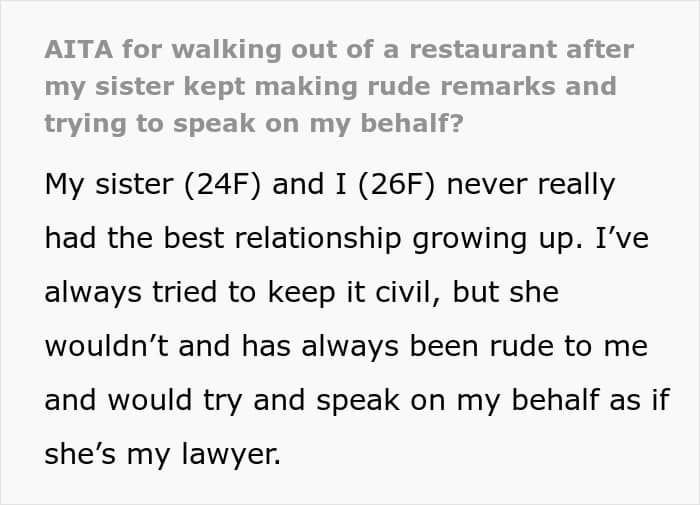
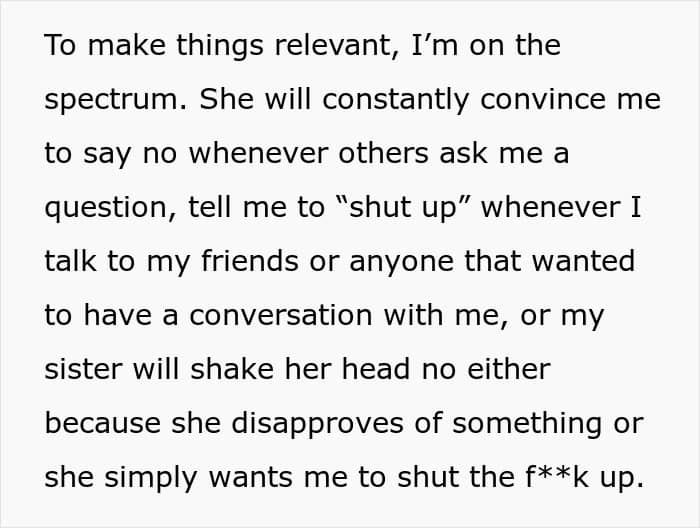

Their parents invited them to a restaurant, and while she considered getting an entrée suggested by her dad, her sister looked at her disapprovingly


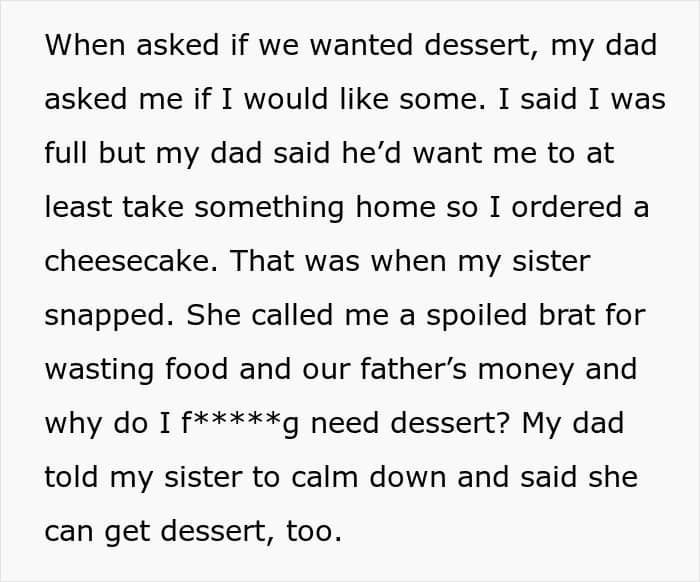

When their food came, their father suggested that she also order some dessert, but this made her sister even angrier

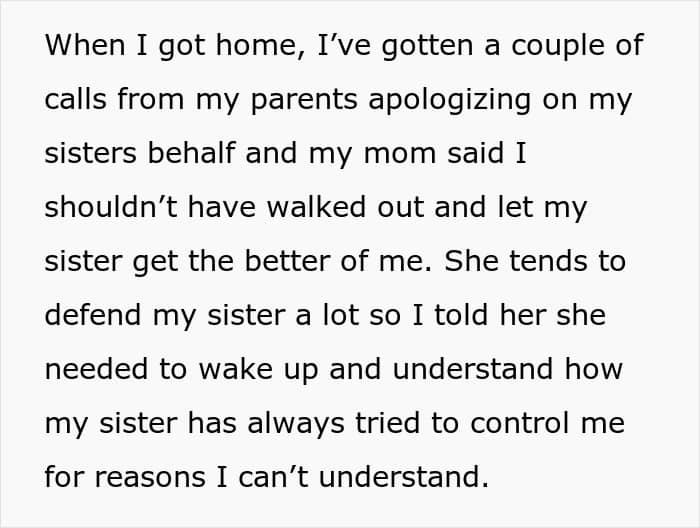
This led to a whole session of name-calling, but the author decided she’d had enough so she walked out even though her parents begged her to stay
The OP began by explaining that she and her younger sister have never been particularly close. While she has always tried to maintain a civil relationship, her sister has consistently been rude and dismissive, often speaking on her behalf. For context, the OP is on the autism spectrum, something her sister seems to use as an excuse to dictate her decisions.
From shutting down conversations to convincing her to say no to things she actually wants, her sister built a pattern of control that’s been hard to shake, and when their parents invited them to dinner this behavior reared its ugly head again. The OP simply wanted to order some appetizers, but after her parents encouraged her to get an entrée for leftovers, she considered it until she noticed her sister shaking her head in disapproval.
When asked what her problem was, the sister declared that she knew best and insisted that ordering an entrée would be wasteful. Ignoring her, the OP went ahead and ordered what she wanted, much to her sister’s obvious frustration. Later, when dessert was brought up, things took an even uglier turn.
Her sister lashed out, calling her names and accusing her of wasting money, despite the fact that the OP has a job and earns her own income. Fed up with the toxic atmosphere, the OP decided to walk out, leaving her parents apologizing on her sister’s behalf. However, instead of fully supporting her, her mother suggested she shouldn’t have let her sister “get the better of her”.

To better understand the dynamics of toxic sibling relationships, We reached out to psychologist Divine Bofangafor insight. She explained that unhealthy sibling dynamics often involve manipulation, constant criticism, excessive controlling, rejection, or a lack of genuine support, emphasizing that relationships should be built on mutual respect and encouragement, rather than control or belittlement.
We also asked about the role of parents in shaping these relationships, to which Bofanga pointed out that parents may unintentionally enable toxic behavior by ignoring conflicts, showing favoritism, or failing to address harmful or toxic behaviors. “When bad behavior goes unchecked, it reinforces negative dynamics,” she explained.
She suggested that it’s important for parents to encourage open communication, set clear expectations for respectful interactions, and intervene when necessary. She explained that when parents address issues early, their children can learn fairness among each other where all siblings feel valued and respected.
When dealing with a controlling sibling, setting firm boundaries is crucial, Bofanga emphasized. We asked her about healthy ways one can set boundaries with controlling siblings, and she stressed the importance of communicating assertively but not aggressively and being consistent in reinforcing those limits.
“If a sibling is particularly authoritative, standing your ground and refusing to engage in manipulative behavior helps establish respect,” she advised. Over time, maintaining these boundaries sends a clear message that their control is not acceptable, and could ultimately lead to a healthier and more balanced relationship.
Netizens affirmed that the OP was not wrong for walking out of dinner and that her sister’s behavior is immature, controlling, and unacceptable. Some also criticized her parents for enabling the sister’s actions instead of holding her accountable. Others suggest that the woman should set firm boundaries and refuse to attend family gatherings where her sister is present.
What do you think about this situation? If you were in the OP’s shoes, would you have walked out, or handled it differently? We would love to hear your thoughts!
Netizens believe she wasn’t wrong and even speculated that her sister was jealous of her, while others blamed their parents

